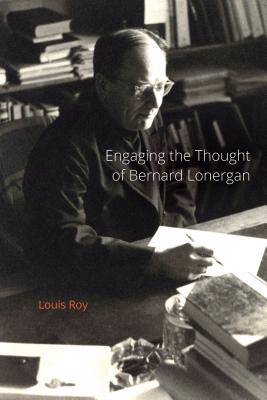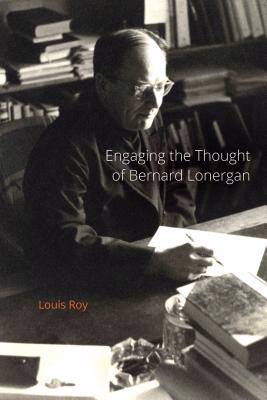
Door een staking bij bpost kan je online bestelling op dit moment iets langer onderweg zijn dan voorzien. Dringend iets nodig? Onze winkels ontvangen jou met open armen!
- Afhalen na 1 uur in een winkel met voorraad
- Gratis thuislevering in België vanaf € 30
- Ruim aanbod met 7 miljoen producten
Door een staking bij bpost kan je online bestelling op dit moment iets langer onderweg zijn dan voorzien. Dringend iets nodig? Onze winkels ontvangen jou met open armen!
- Afhalen na 1 uur in een winkel met voorraad
- Gratis thuislevering in België vanaf € 30
- Ruim aanbod met 7 miljoen producten
Zoeken
€ 163,95
+ 327 punten
Uitvoering
Omschrijving
Bernard Lonergan (1904-1984) was a Canadian Jesuit philosopher, theologian, and humanist who taught in Montreal, Toronto, Rome, and Boston. His groundbreaking works Insight: A Study of Human Understanding (1957) and Method in Theology (1972) attempt to discern how knowledge is advanced in the natural sciences, the human studies, the arts, ethics, and theology. In Engaging the Thought of Bernard Lonergan, Louis Roy stresses the empirical aspect of Lonergan's cognitional theory in relation to the role of meaning, objectivity, subjectivity, and historical consciousness. Rather than introducing every facet of his philosophy and theology, Roy delivers a balanced account of Lonergan's achievements in fifteen discrete studies, delving into the implications of his cognitional theory for religious experience, theology, education, truth, classicism, relativism, and ethics. Discussing aspects of Lonergan's thought that are seldom examined, these fifteen studies represent, criticize, and develop the ideas of one of the most important thinkers of the twentieth century. Demonstrating the richness of one scholar's contributions to contemporary culture, Engaging the Thought of Bernard Lonergan presents a thoughtful analysis and a significant advance in Lonergan studies.
Specificaties
Betrokkenen
- Auteur(s):
- Uitgeverij:
Inhoud
- Aantal bladzijden:
- 248
- Taal:
- Engels
Eigenschappen
- Productcode (EAN):
- 9780773547063
- Verschijningsdatum:
- 29/03/2016
- Uitvoering:
- Hardcover
- Formaat:
- Genaaid
- Afmetingen:
- 152 mm x 231 mm
- Gewicht:
- 453 g

Alleen bij Standaard Boekhandel
+ 327 punten op je klantenkaart van Standaard Boekhandel
Beoordelingen
We publiceren alleen reviews die voldoen aan de voorwaarden voor reviews. Bekijk onze voorwaarden voor reviews.











